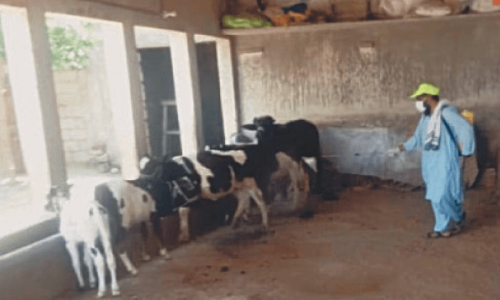ISLAMABAD: Benazir Bhutto was a courageous and visionary leader who knew the art of intellectual engagement and dialogue with opponents and even with her detractors. She was a strong believer in democracy.
This was the gist of a talk given by Zahid Hussain, senior journalist and author, during a conversation with noted poet Ilona Yusuf on the former’s book Face to Face with Benazir Bhutto.The event was organised by the Asia Study Group (ASG) at the Islamabad Foreign Women’s Association auditorium on Monday.
The latest book of Mr Hussain is a compilation of his 14 interviews with Benazir Bhutto, the first woman prime minister of the Muslim world. It provides insights into her thoughts, ideals and aspirations, covering the period from her return to Pakistan in 1986 to 2002 and addresses key moments in her political career.
Mr Hussain, who is an author of several books including Frontline Pakistan, The Scorpion’s Tail and No-Win War – The Paradox of US-Pakistan Relations in Afghanistan’s Shadow, reflected on Benazir Bhutto’s political journey, her commitment to democracy and her ability to engage in intellectual dialogue with opponents.
He discussed the challenges she faced, including the adversarial political environment during her father’s trial, rigged elections and conspiracies against her government. Despite obstacles, Benazir remained optimistic about democracy, he said, adding that her father and former prime minister Zulfikar Ali Bhutto was executed after the most questionable judicial trial in 1979 but she had no revenge for her detractors.
Ironically, the Supreme Court started Tuesday the hearing of a presidential reference against the “judicial murder” of the first elected prime minister of Pakistan and author of the 1973 Constitution over 40 years after his execution.
During the conversation, Mr Hussain said: “It was the worst time when the country was under military rule but it was also the best of time when the media despite the dictatorship was enjoying freedom.”
He recalled the memories of his association with two leading monthly news magazines – Herald and Newsline – their high standards of journalism and demise. He also quoted his first encounter with Benazir Bhutto in 1986 in Lahore when she started her political career as the youngest politician at 31, full of energy, dreams, ambitions and daunting challenges from a patriarchal society and real powers.
The talk delved into specific events, such as the Saarc conference in 1989, where hopes for regional peace were over shadowed by establishment’s conspiracies. The 1990 elections were heavily rigged, and Benazir faced a continuous struggle to stay in power, offering an olive branch to Nawaz Sharif and signing a Charter of Democracy.
Mr Hussain acknowledged BB’s admission of mistakes during her second term, however, he emphasised her intellectual engagement with opponents and media, contrasting it with the current political landscape.
The discussion touched on Benazir’s legacy, the challenges she faced and the price she paid for her courage in challenging extremism, militancy and defending democracy.
Mr Hussain, an award-winning journalist and author, who has also covered Pakistan and Afghanistan for several other international publications, also noted the decline in the quality of journalism, and the rise of digital media.
“I was critical of BB’s policies, but she never became angry rather engaged in intellectual conversation,” he said.
Responding to a question, Mr Hussain reflected on Asif Ali Zardari’s political style of wheeling and dealing which was distinct from Benazir’s.
He termed her death the biggest blow to Pakistan Peoples Party (PPP).
He suggested that Bilawal Bhutto-Zardari needs to undergo a rigorous struggle akin to his mother.
He also highlighted the challenges faced by traditional politicians, and mainstream parties, and the impact of demographic changes, youth aspirations and social media, with a mention of the effective exploitation of social media by the Pakistan Tehreek-i-Insaf (PTI).
Published in Dawn, December 13th, 2023














































Dear visitor, the comments section is undergoing an overhaul and will return soon.